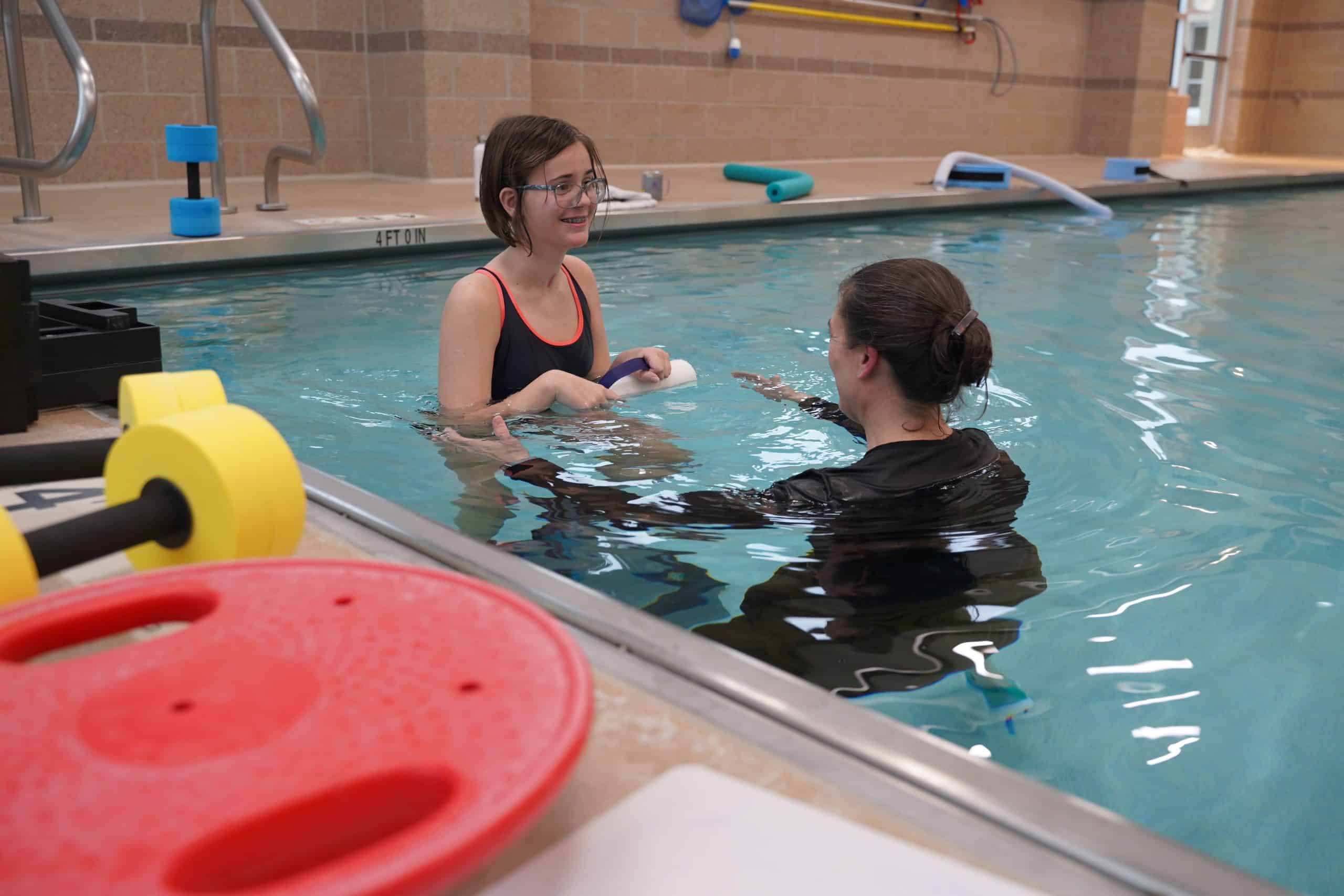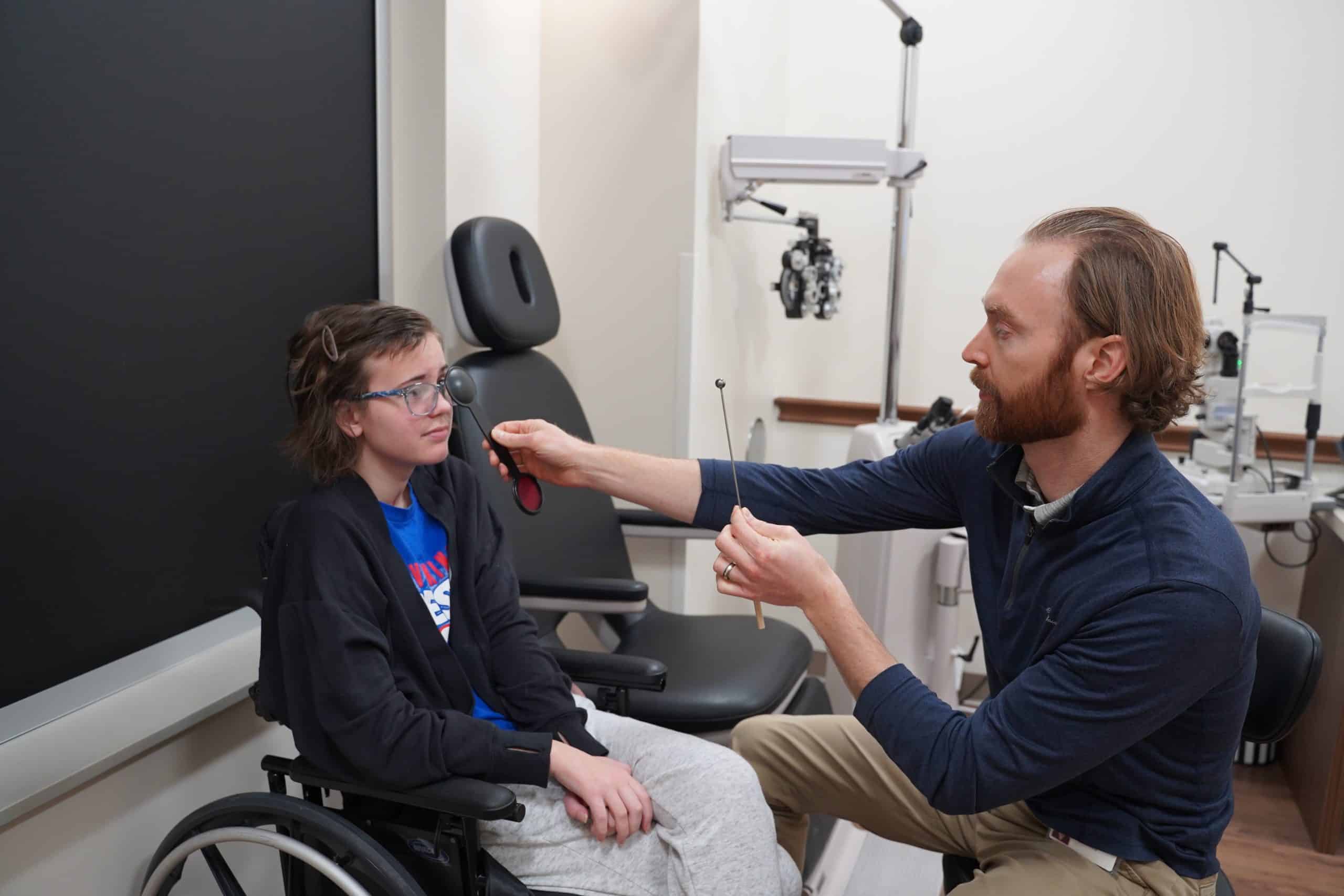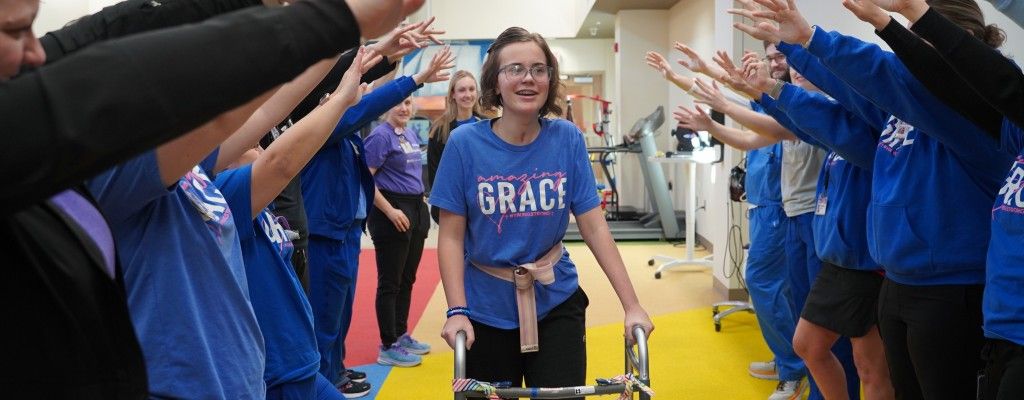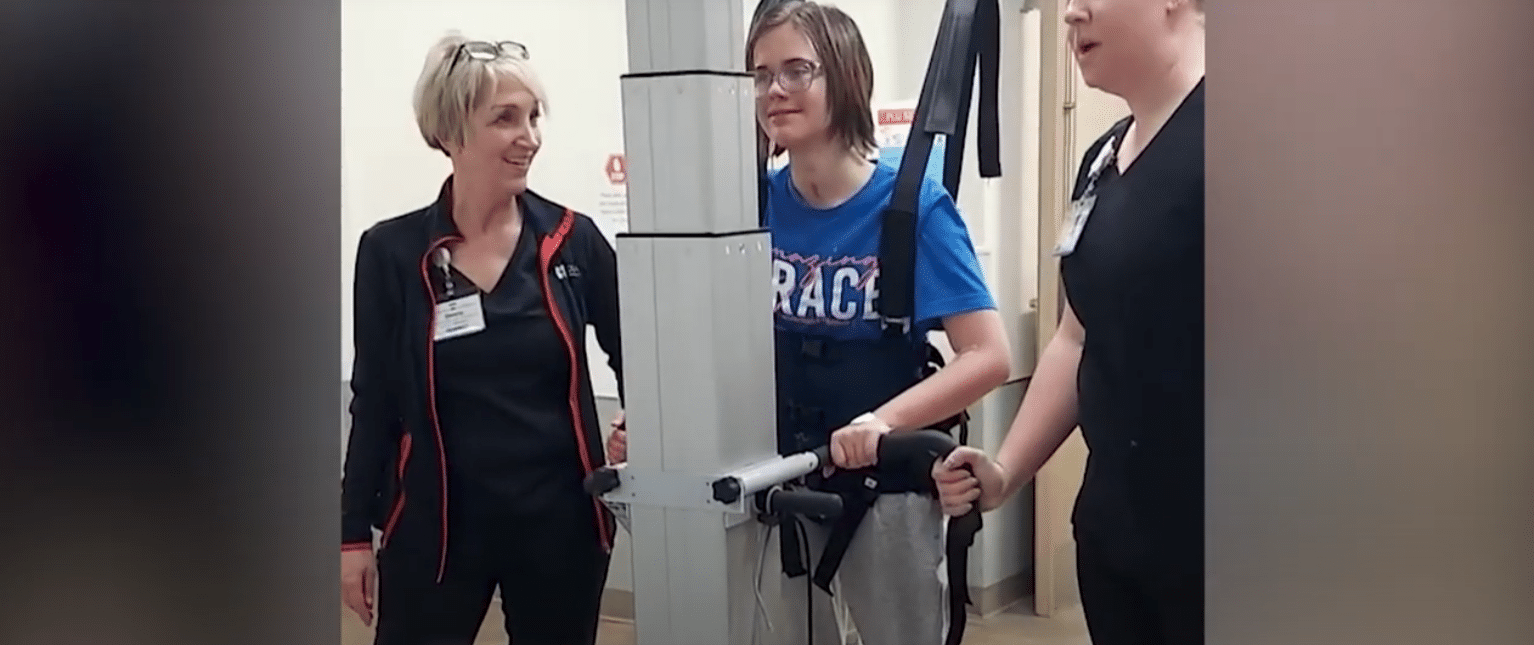Fifteen-year-old Grace Pauley’s recovery from a serious car accident in September has been nothing short of a miracle, her mom says. The Shelby, Iowa, teen simply surviving the rollover crash surprised her doctors. Her family was counseled to withdraw care and asked to consider organ donation. But her mom, Rhonda Buck, wasn’t ready to give up. She says their family always called Grace, ‘Amazing Grace,’ and knew she would prove clinicians wrong. They talked about their options and prayed, deciding Grace needed to be given the best chance at recovery.
After spending a month in the pediatric intensive care unit at Nebraska Medical Center, Grace came to Madonna Rehabilitation Hospitals’ specialized pediatric disorders of consciousness program. She was in a minimally conscious state, unable to talk, walk, eat, or even breathe on her own.
“She not only had a lot of physical injuries, but she also had a diffuse axonal brain injury, which is comparable to shaken baby syndrome, and it was a level three, which is the worst,” Rhonda said. “While our girl was alive, we didn’t know what would happen, and that was really hard.”
From day one, Grace’s physician-led care team saw her strength and determination. They got to work right away, incorporating familiar and motivating items into sessions to help her emerge into a conscious state.
“I remember on day one of her evaluation thinking, ‘Oh, this girl is going to make some great gains,’ Rachel Stonacek, MS, CCC-SLP, CBIS, a Madonna speech-language pathologist, said. “She’s there. She’s showing me some great things.”
During her initial evaluations, Grace had already started to squeeze a ball and wave her hand. She even grabbed a toothbrush and brought it to her mouth.
“She was showing me there was comprehension and that she could hear me and she was understanding,” Stonacek said.
After she met her first goal and was able to wean from the ventilator, the focus in speech therapy shifted to purposeful movement.
“We started by working on her visual attention, so trying to get her to look at pictures of her friends or family members and trying to get her to respond to her mom’s voice by turning her head and looking,” Stonacek said. “She picked up on that really quickly on day one and we were really excited to see some of these intentional responses to stimulation, so we just built on that every day on trying to make it more and more consistent and functional.”
Early on, Grace surprised her care team by writing her name.

“I think it was really exciting when she showed us she could read and write because that showed us that cognitively she was comprehending and that she had a good way to communicate,” Stonacek said. “It was like, ‘Wow, ok, we are going to be able to communicate with her again and give her more choice and more independence.’”
Community outings to places like Scooter’s Coffee and Scheels sporting goods store allowed Grace to work on her voicing by having her vocalize her thoughts on different pieces of clothing, or letting her mom know she wanted more of her caramel coffee. Her mom was also able to get hands-on training and gain confidence in her ability to take her daughter places safely.
As Rhonda received more caregiver training, Grace became more independent. She got stronger, and aquatic therapy in Madonna’s warm water therapy pool enhanced her balance and coordination. Once she could bear her own weight, Grace quickly transitioned from using a walker to the LiteGait body weight support system to take steps.
“She always said she hated it, but we did it a lot and I think that was one of the biggest things to help aid in her recovery with walking, to push her endurance with long distances,” Bailey Leversee, PT, DPT, a Madonna physical therapist, said. “We joked around a lot while still meaning business.”
With help from Dr. Tanner Gates, Madonna’s neuro-optometrist, Grace received custom glasses and participated in weekly vision therapy sessions. Seeing clearly helped her balance and focus, which led to even more success in physical and occupational therapy.
With brain injury recovery, there can be good days and bad days. Leversee said Grace would always do the hard work and fight through the difficult days.
“We would always tell her, ‘You’ll thank me when you come back,’ and I think she’s very appreciative now looking back how far she’s come, and I can’t wait to see what great things she does ahead,” Leversee said.
Leversee noted that Rhonda proved to be a key to Grace’s success As Grace’s mom, Rhonda provided daily motivation and support when therapy sessions became challenging. She also carried over skills learned in therapy during down times and weekends. Rhonda and Grace worked diligently on their ‘homework,’ including memory games and endurance building.

“We could educate Rhonda on what we would like to see her try to implement to get them ready for home, but also to help aid in her recovery throughout her time here,” Leversee said.
With every step, Grace’s sassy and spunky personality came out—a welcome sight to her mom.
“You can’t even put into words the pride and the gratitude and the joy of her slowly coming back to herself,” Rhonda said. “Grace has a lot of healing yet to do, but Grace is very much still Grace.”
Thanks to Madonna’s Therapeutic Learning Center, Grace kept up with her classwork, making the return to her school and social life with friends easier. She also gave progress updates to the thousands of people across the country who have supported her through her journey in a Facebook group called ‘Grace Strong.’
Over her 100 days at Madonna, Grace has proven why she’s earned her nickname, ‘Amazing Grace.’ But she’s not done yet. She continues to participate in intense daily therapies in Madonna’s Rehabilitation Day program, with traditional outpatient therapy to follow.






